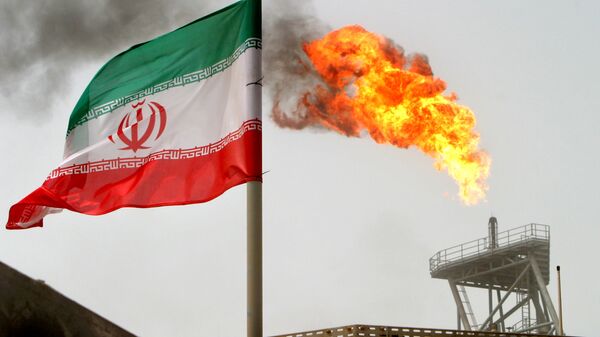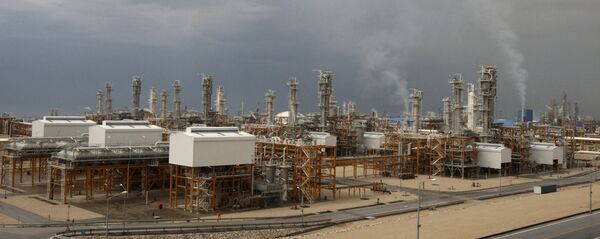The International Energy Agency claims that in April of this year, Iran's production fell by 130,000 bpd to 2.61 million bpd. However, Manouchehr Takin, a London-based independent expert on energy security and former OPEC senior officer said that such a forecast cannot be 100% trusted:
"This problem arose during the time of Mahmoud Ahmadinejad (President of Iran from 2005 to 2013 — ed. note Sputnik) when the US announced that they would apply sanctions against Iran and that any country that buys oil from Iran will be subject to fines", Takin said.
READ MORE: Exxon Mobil Reportedly Evacuates Staff From Iraqi Oilfield Amid US-Iran Tension
According to him, today, while the United States declares that its embargo has reduced Iranian oil production to 1.1 million barrels per day (bpd), a number of structures monitoring oil tankers using satellite images and other sources, state a different figure for Iran's oil production, namely, 1.9 million bpd.
"On the other hand, no one knows how seriously the buyers of Iranian oil perceive the American threat. For example, China said it would continue to buy oil from Iran. The Indian government took a similar stance. China is conducting talks with the United States, whilst the conflict between the two countries has sharply escalated as a result of the trade war," Takin said adding that "during these negotiations, the two countries may even come to such a result that China, for instance, will refuse to buy Iranian oil and will demand in exchange a reduction of import tariffs on its soybeans to the United States".
The expert also noted that the IEA could only make such a forecast based on Trump's statements regarding oil purchases. Takin is convinced that, contrary to expectations and a possible decline in Iran's activity in the oil market, the price of "black gold" will not surge, and Iranian strategic energy resources might be taken "hostage" by Saudi Arabia, together with the United States:
"In contrast to Iran's expectations, this effect [of a slowdown in Iranian oil production — ed. note Sputnik] will not be very strong, because Saudi Arabia has production capacity for oil output, and the United States itself extracts shale oil. As a result of a decline in Iranian oil prices, global oil prices will rise in any case, but it must be borne in mind that Saudi Arabia can increase its output from 1.5 to 2 million bpd. The Kingdom of Saudi Arabia (KSA) has good relationships with the USA. However, we do not know how this will affect future decisions of the KSA, an OPEC member. It may, in cooperation with OPEC, refuse to increase oil production. Or it can tacitly increase its output, while even stating a decline in production. Or, maybe even officially increase oil production".
"This indicates the key role of KSA in world oil production. Then, in terms of shale oil production, it is followed by the United States. Within one year they increased the annual oil production by 1 million bpd. For the same increase in the production of oil extracted out of the ground or from the bottom of the sea, they would need 3 to 5 years", Takin concluded.
READ MORE: US-Iran Tensions: Is a US Attack Through Iraq Possible?
The views and opinions expressed by the speaker do not necessarily reflect those of Sputnik.



